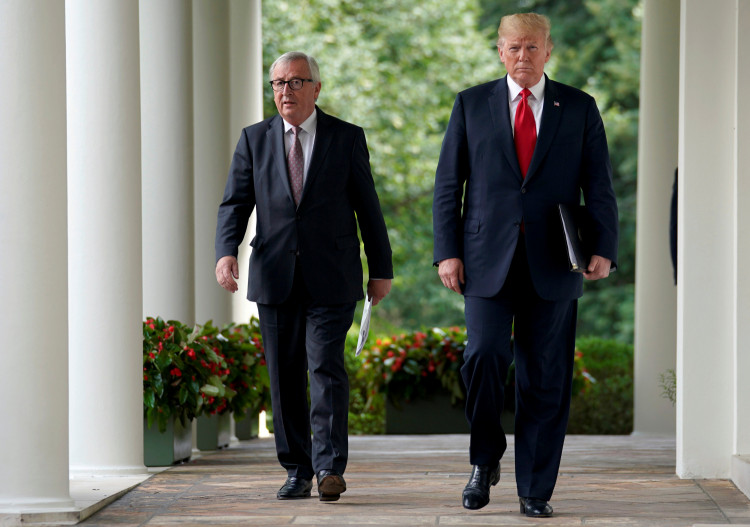The European Union (EU) is reportedly mulling whether it should slap tax duties on over $4 billion U.S. exports. No approval has been provided yet and sources said at least one bloc member doesn't like the idea.
Insiders with knowledge of the matter told Bloomberg on Wednesday that the idea was raised shortly after United States President Donald Trump threatened to impose tariffs on around $7 billion goods from the bloc.
Trump's comments came after it was alleged that EU aid was illegally provided to Boeing's biggest rival, Airbus. The two aviation leaders have been trying to oust the other in the top spot of the world's aircraft-making market.
The Airbus dispute has been running for 14 years as the White House continues to insist that the EU granted subsidized loans to the European plane maker. A list of trade volume that can be tariffed by the U.S. will be released by the World Trade Organization (WTO) within the next few weeks.
Aside from the alleged subsidized loans, Washington accused the bloc of separately providing financial support for Airbus' development of the A380 superjumbo jet and the A350 model.
This is not the first time tariff discussions were raised in the EU. Earlier this year, the European Commission led a public consultation on U.S. imports that could receive tax duties.
It was also revealed on Wednesday that the WTO is expected to authorize American tariffs on almost $8 billion EU products, sources familiar with the situation said. The tariffs are also expected to take effect sometime October as soon as the official list of goods is released.
Some luxury products are at stake in the brewing U.S.-EU trade dispute, including Louis Vuitton, Christian Dior, Hermes, and Givenchy, as well as spirits and wine firms Moet & Chandon and Dom Perignon. An official decision is reportedly due September 30.
Brussels has not given up on its hard-line stance against the Washington as the bloc is expected to drag the U.S. to court for allegations related to illegal subsidies reportedly provided by the White House to Airbus' rival, Boeing.
Trump has already imposed trade restrictions on foreign aluminum and steel. The bloc, on the other hand, retaliated with tariffs on around $3.2 billion U.S. imports. It is worth noting that the two sides already reached what is dubbed as a "mutually acceptable solution" to the long-running dispute in 2006.
If the EU pursues new tariffs for its American counterpart, analysts said it could raise further questions on the WTO's process of handling regulations on preventing tariff retaliation and imposition.






